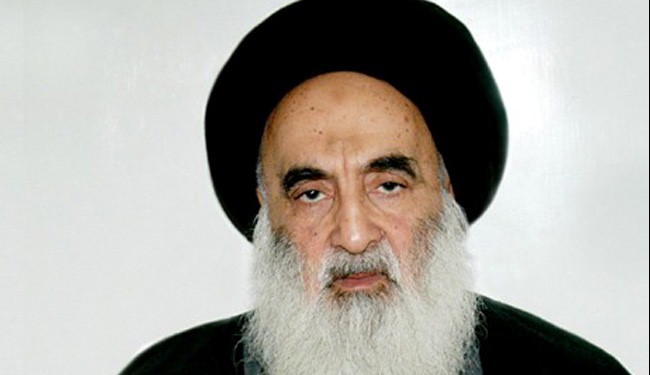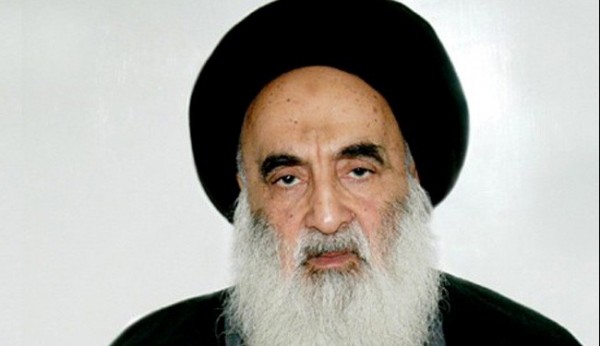
Grand Ayatollah Ali al-Sistani has become increasingly critical of Iraqi leaders following Islamic State’s lightning advance created Iraq’s worst crisis since a U.S.-led invasion toppled Saddam Hussein in 2003.
Iraq’s army, recipient of $25 billion in U.S. training and funding, collapsed in the face of the onslaught. Further Islamic State gains and the beheading of Western hostages triggered U.S.-led air strikes.
Speaking on live television through an aide in the holy southern city of Kerbala, Sistani asked rhetorically what would happen if the military were corrupt.
“We think that the security deterioration that happened some months ago can answer that,” Sistani said. “Objectivity demands that the different military positions should be occupied by those who are professional, patriotic, faithful, courageous and not affected in doing their duties by personal and financial influences.”
MILLIONS OF FOLLOWERS
Sistani, whose word is law for millions of followers, went on to say that “even the smallest corruption is big”.
The 84-year-old cleric is a reclusive figure and always delivers his public messages via a proxy.
In the past few months, he has openly criticized Iraqi leaders and politicians, saying their bickering and sectarian differences were undermining Iraq, a major OPEC oil producer.
The comments about the army mark a deeper level of concern over the stability of Iraq.
U.S. air strikes have prevented Islamic State making further large-scale advances since August, when the al Qaeda offshoot beat back Kurdish peshmerga forces in the north and triggered a massive exodus of minority communities.
U.S. and allied nations staged eight air strikes on Islamic State targets in Syria in the past three days and also hit the insurgent group in six attacks in Iraq, the U.S. Central Command said on Friday.
Lacking a strong army, Iraq’s government turned to Iranian-backed Shi’ite militias. But their alleged violations of human rights have exacerbated sectarian tensions, with the Sunni minority complaining of kidnappings, torture and executions.
Militia leaders deny those accusations.
Britain has said it will send more army trainers to Iraq in coming weeks to support the Iraqi armed forces’ battle against Islamic State.
But even if more Western countries step up support for Iraq’s military, the overriding question will be whether the Shi’ite-led government can revive an alliance with Sunni tribesmen who helped defeat al Qaeda during the U.S. occupation.
Leaders of the Albu Nimr tribe in Anbar province, which has seen hundreds of its members massacred over the past two weeks, say the Baghdad government and military ignored repeated pleas for help as Islamic State closed in on them.
Islamic State has pressed its advances in Anbar, coming ever closer to Baghdad. It is now encircling the province’s largest air base, Ain al-Asad, and the vital Haditha dam on the Euphrates.
Some tribal leaders acknowledge that the government may be reluctant to support Sunni fighters because weapons ended up in the hands of Islamic State before due to corruption.
Nevertheless Sunni tribes are demanding help.
“If the central government will not be able to give us military support soon, we will resort to other options, including requesting ground troops from the international coalition,” Sabah Karhoot, chief of the Anbar Provincial Council, told a news conference in Baghdad.
Reuters


Leave a Reply
You must be logged in to post a comment.